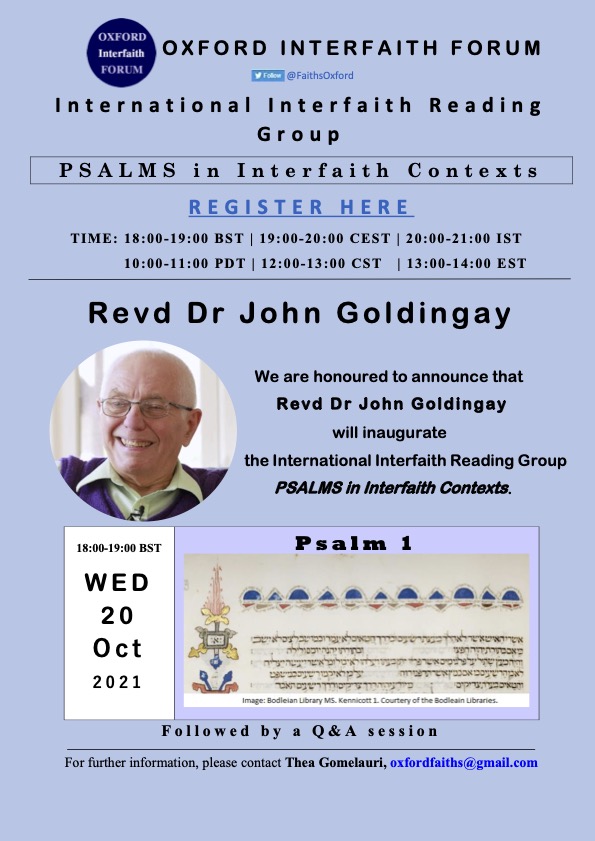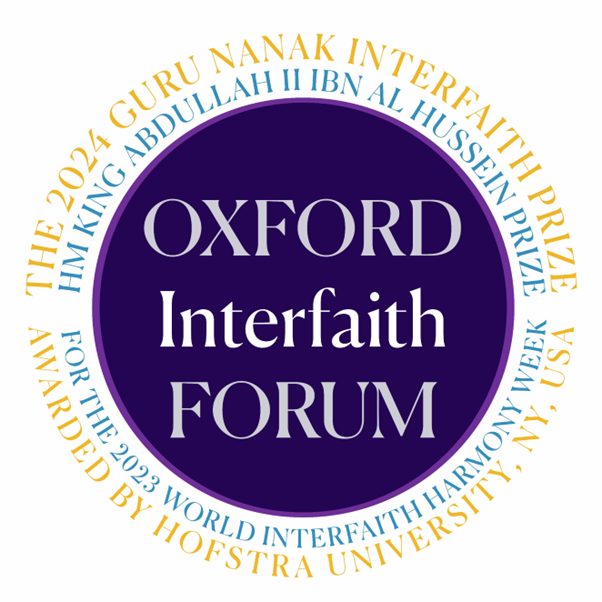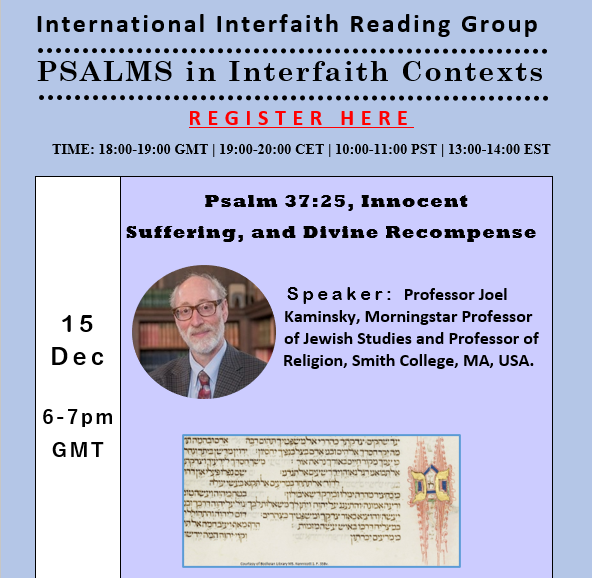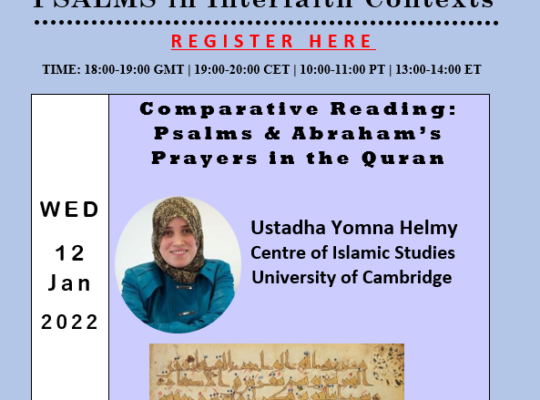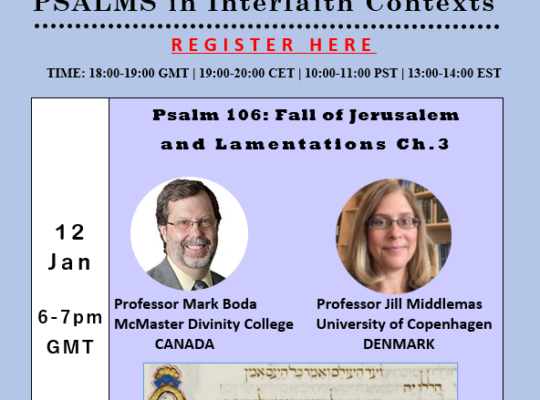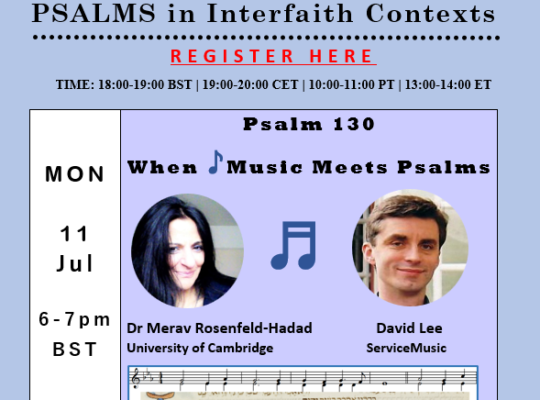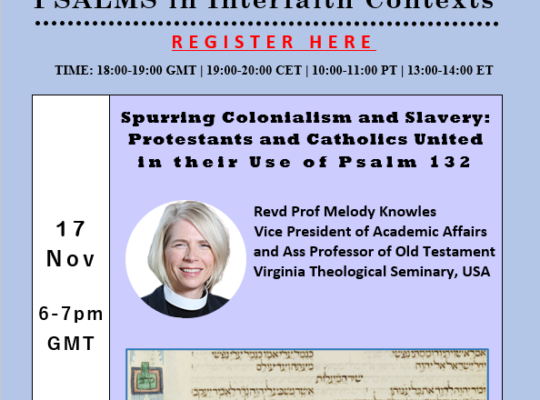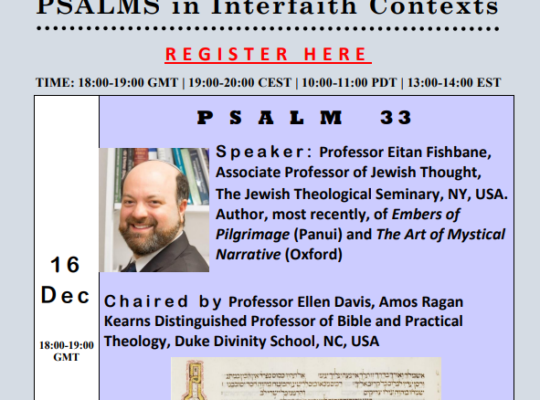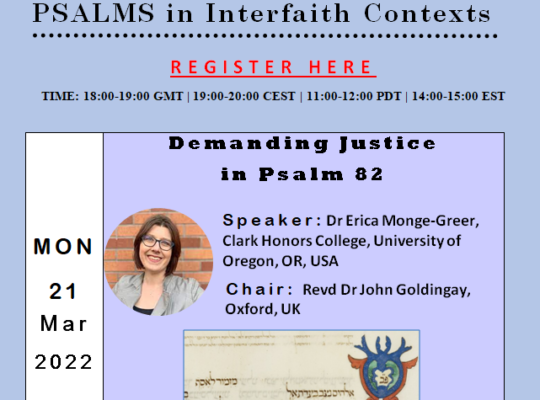15 December, 2022
We are deeply honoured to welcome Professor Joel Kaminsky, Morningstar Professor of Jewish Studies and Professor of Religion, Smith College, MA, USA, to lead a session of the Psalms in Interfaith Contexts Reading Group.
Here are the details of this fascinating session.
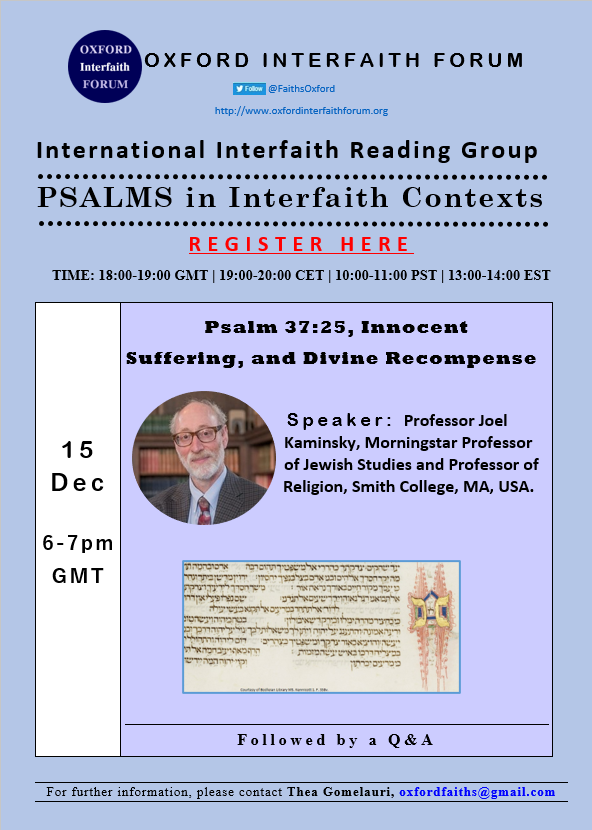
Topic: Psalm 37:25, Innocent Suffering, and Divine Recompense
Abstract: Recent scholarship has tended to see the book of Job as sweeping away an earlier, mechanistic theology of divine recompense found widely throughout the Hebrew Bible. This essay argues that the widespread biblical notion that God rewards the righteous and punishes the wicked, a belief affirmed in many biblical psalms as well as in Proverbs and throughout much of the Torah, is more complex than generally recognized. Recovering the nuances of what I will call the standard view of the Hebrew Bible’s understanding of divine recompense not only helps one better understand the theological outlook of books like Psalms, Deuteronomy, and Proverbs, but also helps one better grasp the debates within Job. The essay is framed by some reflections on Psalm 37:25 that explore why I think our contemporary culture regularly misreads the Bible’s language of divine recompense in spite of the fact that many readers today continue to affirm its basic thrust. It will also discuss many other biblical passages along the way including parts of Psalm 10.
Speaker: Professor Joel Kaminsky, Morningstar Professor of Jewish Studies and Professor of Religion, Smith College, MA, USA.
Speaker’s biography: Joel Kaminsky is the Morningstar Family Professor of Jewish Studies at Smith College where he teaches courses on the Hebrew Bible and on ancient Jewish religion and literature. In addition to his appointment in the religion department, he is also a member of the program in Jewish studies, ancient studies and archaeology. He came to Smith in 1997 after previous teaching appointments at St. Olaf College, Muhlenberg College, Whitman College and Loyola University of Chicago. He has also been a visiting professor teaching graduate level courses at Duke, Harvard and twice at Yale Divinity School. In addition, he has held the position of Visiting Jewish Studies Research Scholar at Durham University in England five times.
His research explores the intersection between narrative and theological currents in the Hebrew Bible and Rabbinic literature. Kaminsky’s work seeks to illuminate the overlapping but quite distinct ways that Jews and Christians over the past two millennia up to the present have interpreted the Hebrew Bible. He strives to integrate his scholarship and teaching, regularly sending students on to graduate school as well as mentoring many doctoral and early career scholars. Kaminsky has authored, co-authored and co-edited several books as well as published many essays and book reviews in both scholarly and more popular journals.
Recent Essays:
“Jewish Reflections on Universalism and Particularism in Genesis” published in The Cambridge Companion to Genesis (edited by Bill Arnold; Cambridge: Cambridge University Press, 2022), 322-340.
“So the rabbi says to the priest: The value of jokes in Jewish-Christian dialogue.” Christian Century 139.3 (February 9, 2022): 30-34.
“‘Is there no balm in Gilead?’: Health, Illness, Death and Dying in the Hebrew Bible and Today.” Interpretation: A Journal of Bible and Theology 75.3 (Summer 2021): 196– 206.
“The Meaning and Telos of Israel’s Election: An Interfaith Response to N.T. Wright’s Reading of Paul,” Harvard Theological Review 112.4 (Fall 2019): 421-446, co-authored with Mark Reasoner.
Books:
The Hebrew Bible for Beginners: A Jewish and Christian Introduction. Co-authored with Joel N. Lohr. Abingdon Press, 2015.
The Abingdon Introduction to the Bible: Understanding Jewish and Christian Scripture. Nashville: Abingdon, March 2014. Lead Author written in collaboration with Joel N. Lohr and Mark Reasoner.
The Torah: A Beginner’s Guide. Oxford: One World Press, 2011. Co-authored with Joel N. Lohr.
Yet I Loved Jacob: Reclaiming the Biblical Concept of Election. Nashville: Abingdon, 2007. Reprinted by Wipf & Stock, 2016.
Chair: Professor Jill Middlemas, Associate Professor at the Faculty of Theology, University of Copenhagen, Denmark.
Time: 18:00-19:00 GMT I 20:00-21:00 Israel Time | 10:00-11:00 PST | 13:00-14:00 EST
Venue: Online
After registering, you will receive email from ZOOM containing information about joining the meeting. If you do not see a Zoom email in your inbox, please, check your spam folder.
If you would like to join the Psalms in Interfaith Contexts Reading Group, please sign up here.
Related Sessions
- Illuminating The Psalms: 29, 92, and 96, in Many Moments
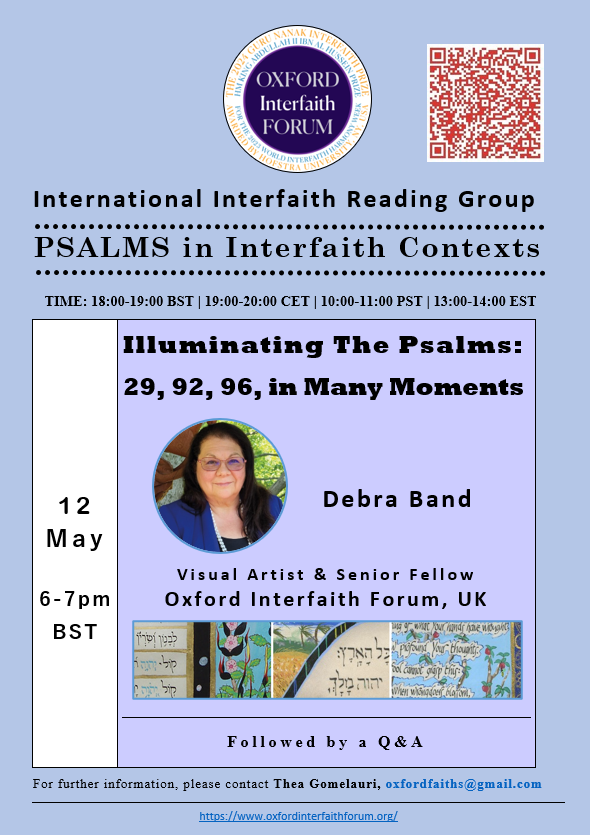
- Psalm 136: Hesed as Praxis
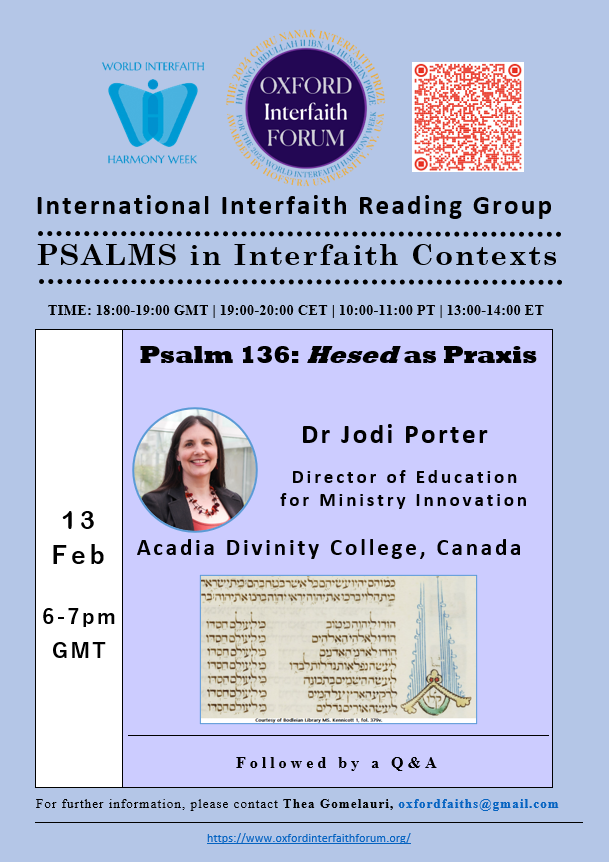
- Was Genesis 1 Dependent on Psalm 104?
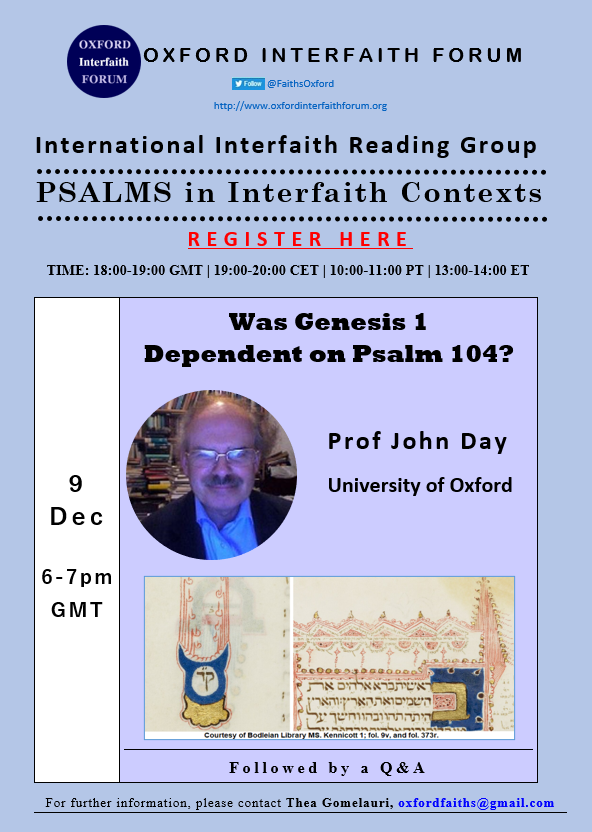
- The Seven Penitential Psalms in the Allegorist’s Hands
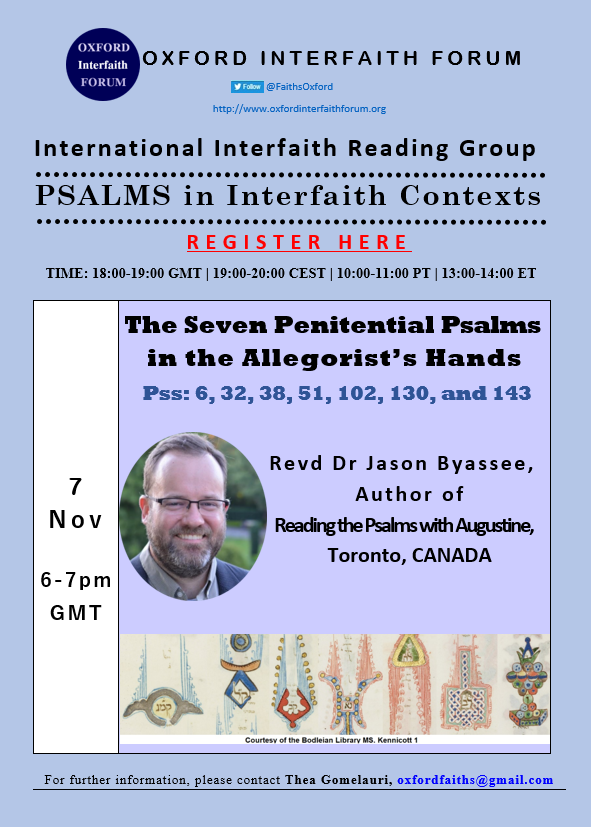
- Beyond Exegesis: The Psalm Cultures of Ancient Jews and Early Christians
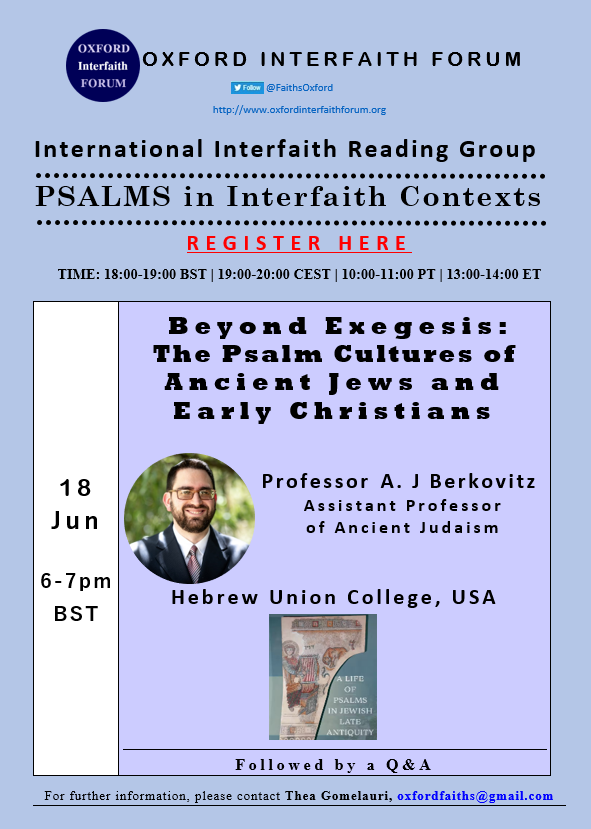
- Psalm 40 and Messiness of Prayer
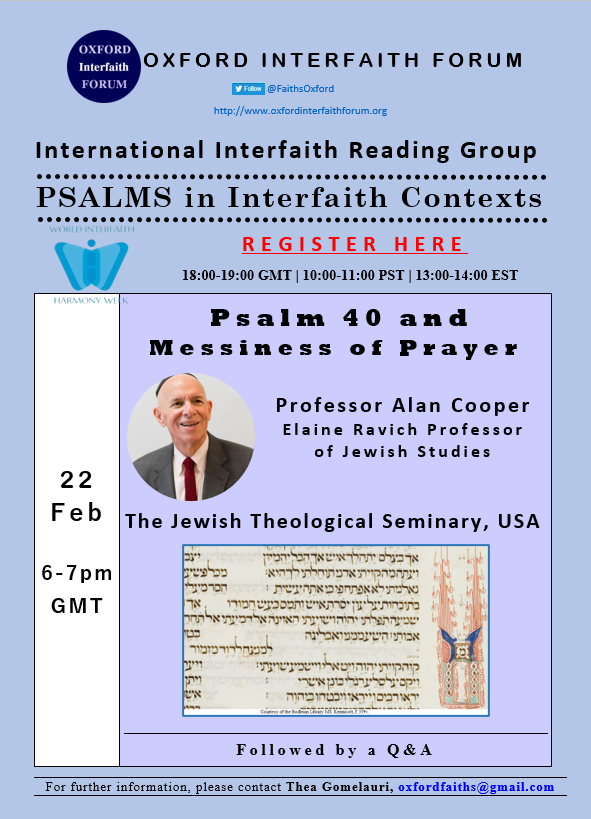
- Psalm 109: The Prayer No One Wants
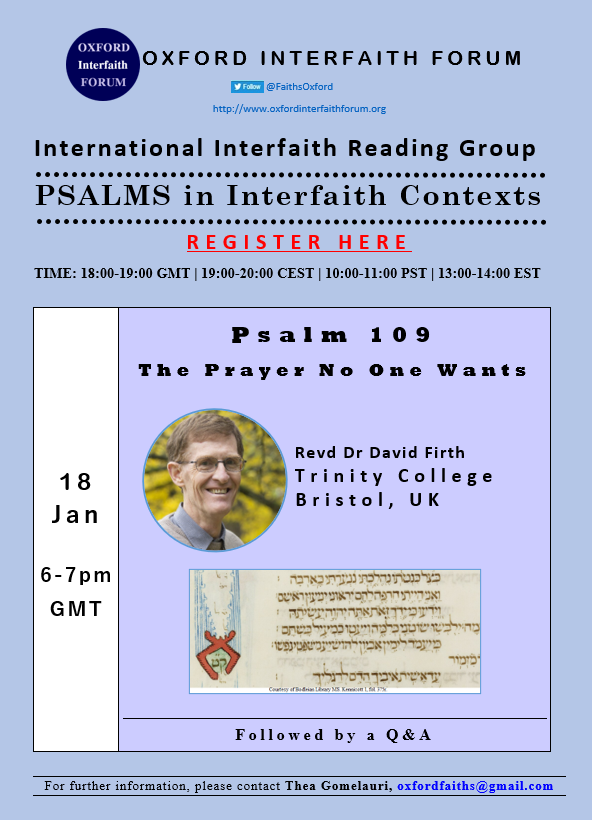
- Psalmody as an Alternative to Theodicy
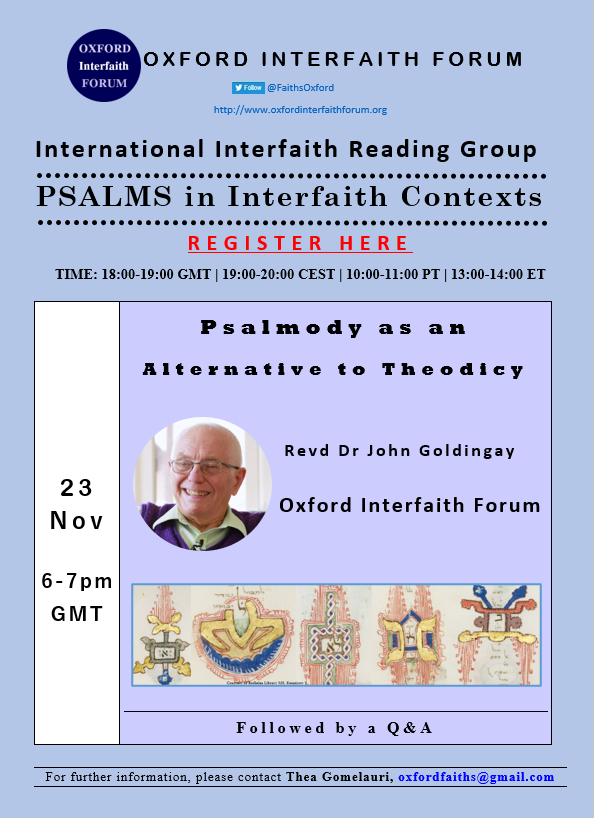
- Psalm 44 and the Book of Job: God on Trial
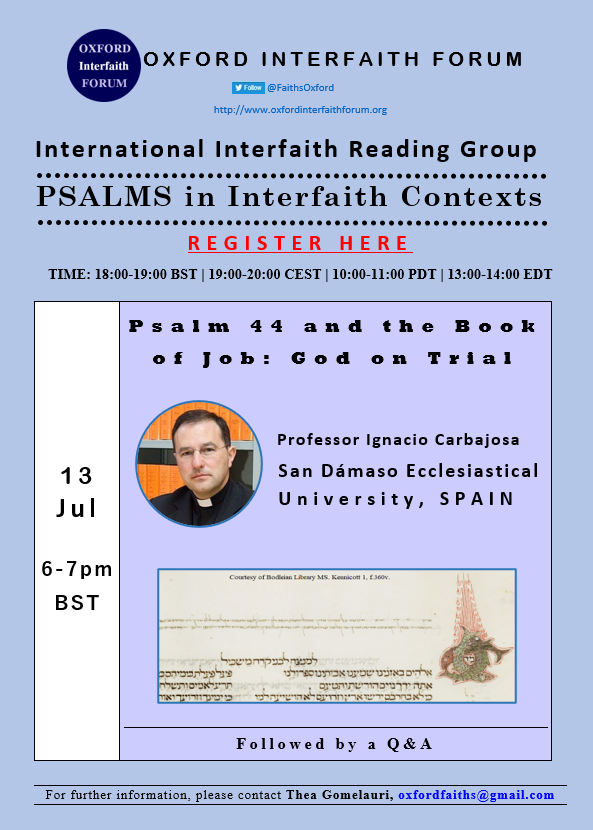
- Exile and Restoration in the Psalms
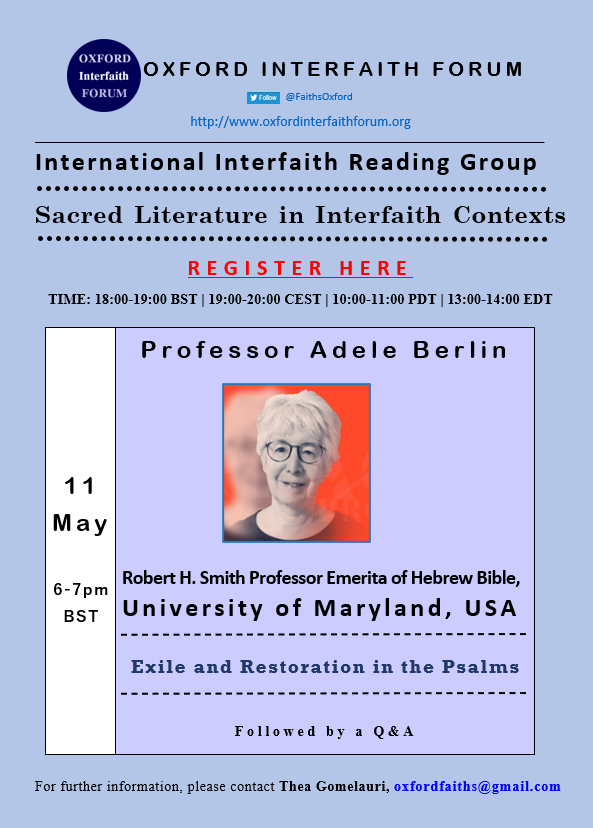
- ‘Deep cries unto deep’: Julian of Norwich and Psalm 42
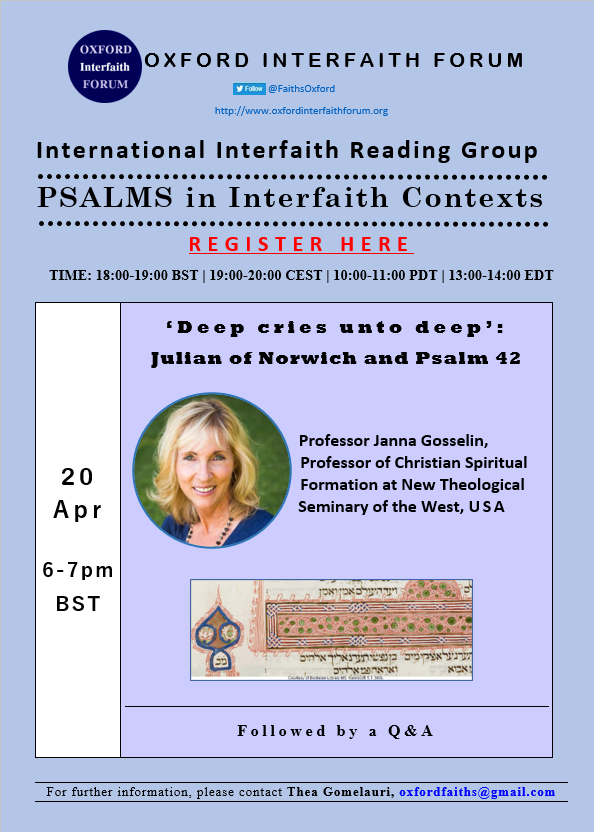
- Ancient Versions of Psalms in Dialogue: Psalms 49 and 104
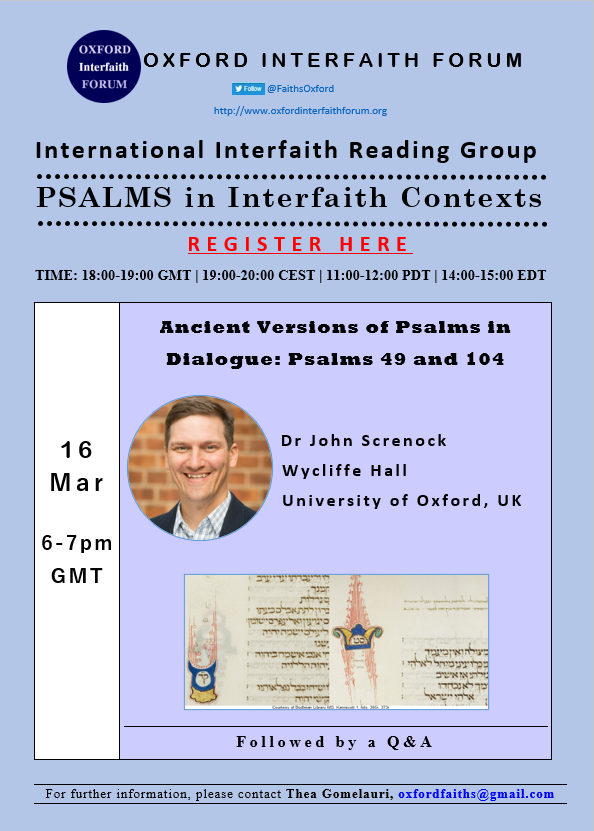
- Awake, My Soul! Psalms: 44; 57; 133; 143
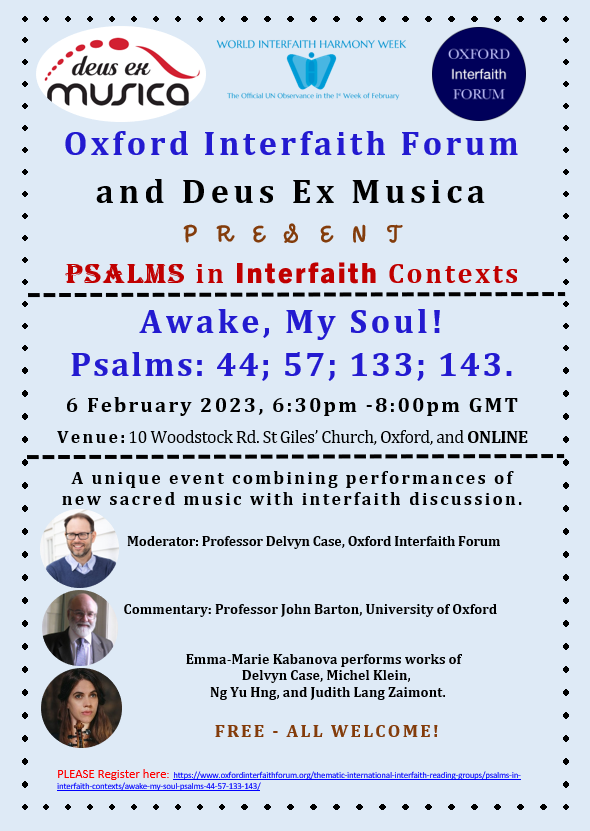
- Psalm 106: Fall of Jerusalem and Lamentations Ch. 3
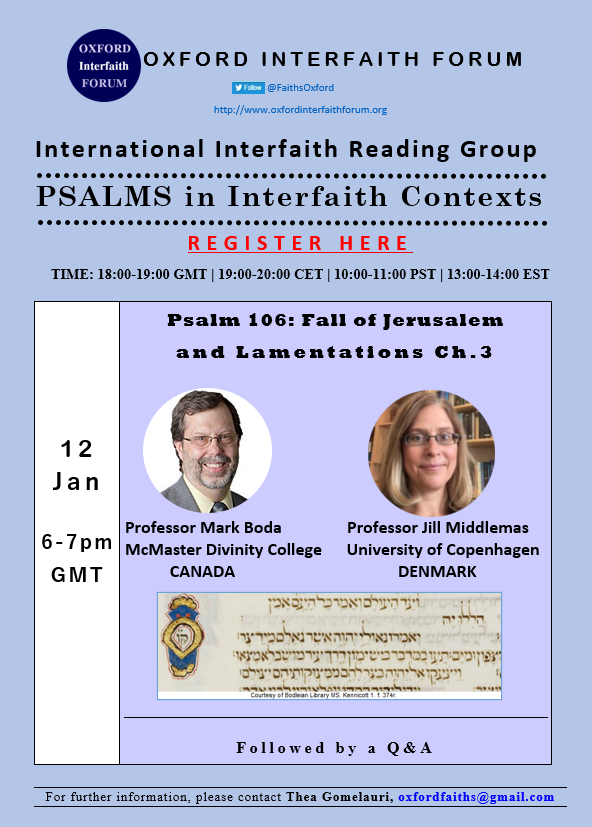
- Psalm 37:25, Innocent Suffering, and Divine Recompense

- Spurring Colonialism and Slavery: Protestants and Catholics United in their Use of Psalm 132
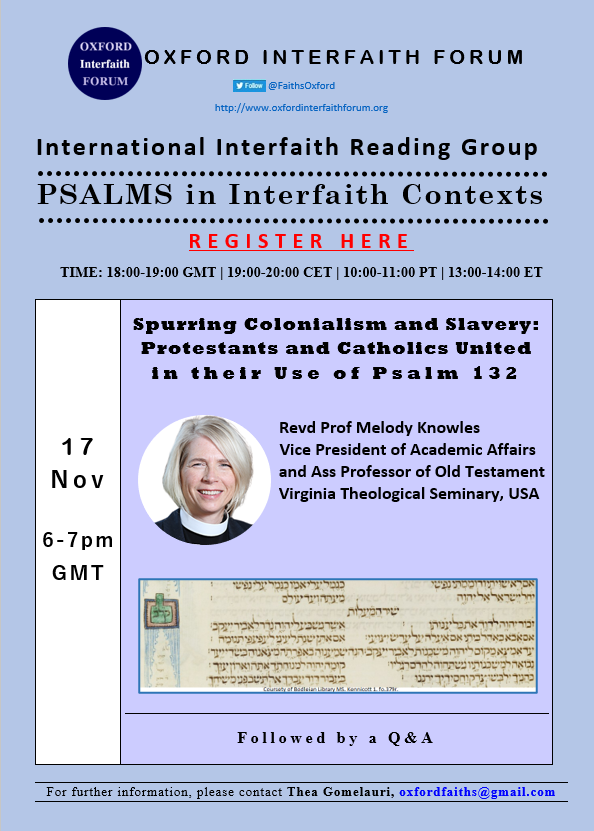
- Midrash Tehillim on Psalm 24
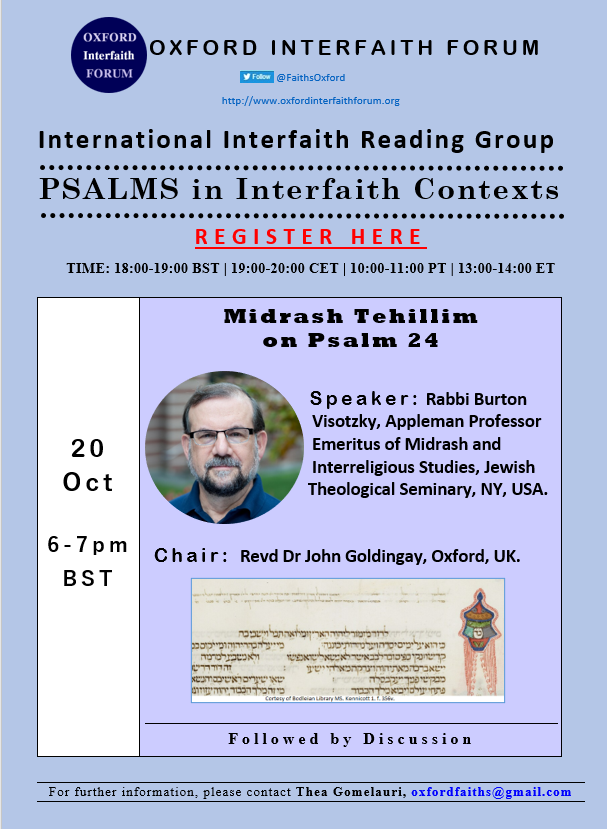
- Psalm 19: Muslim Reflections on Creation
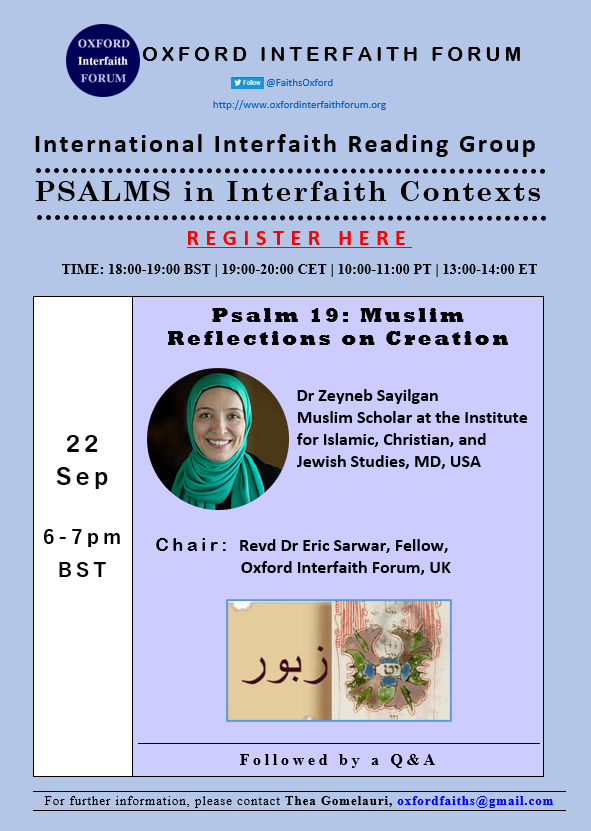
- Psalm 46: Singing in Hope and Defiance
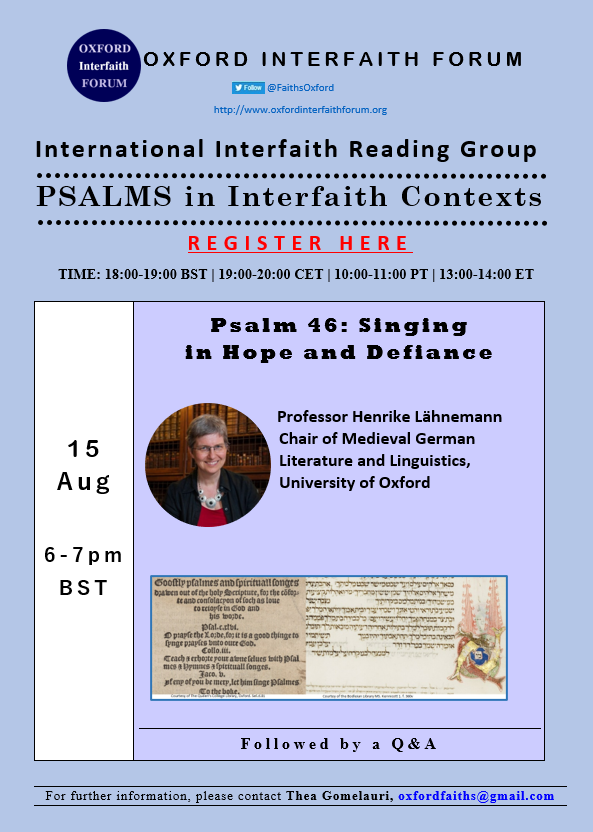
- When Music Meets Psalms: Psalm 130
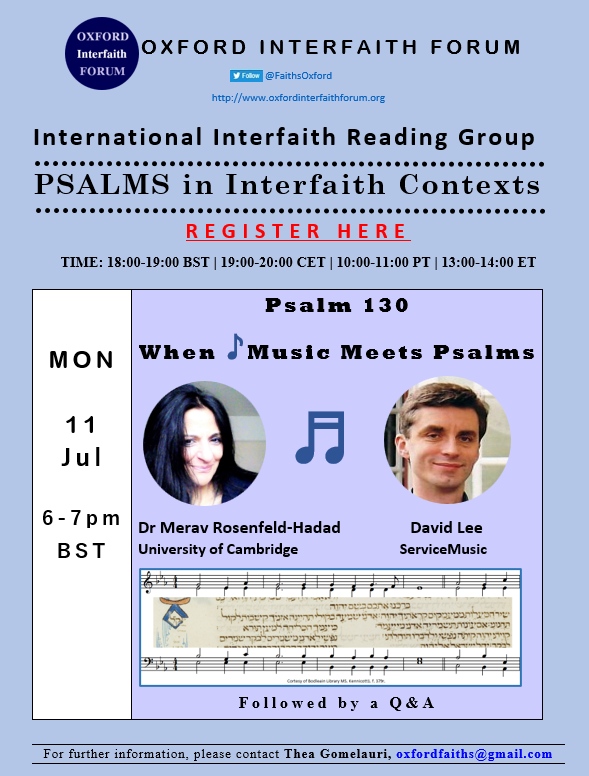
- Psalm 131: How I Weaned Myself from the Breast of God
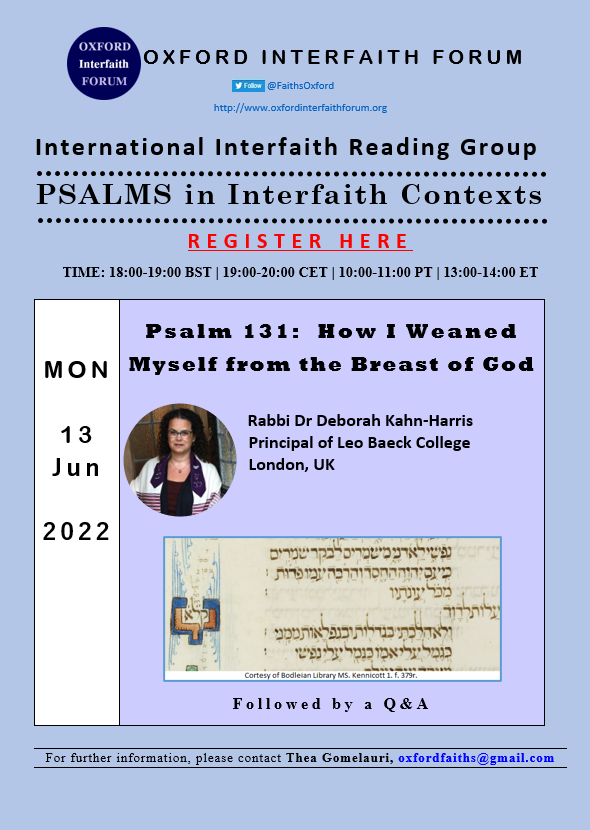
- Psalm 132: A Song of Ascents
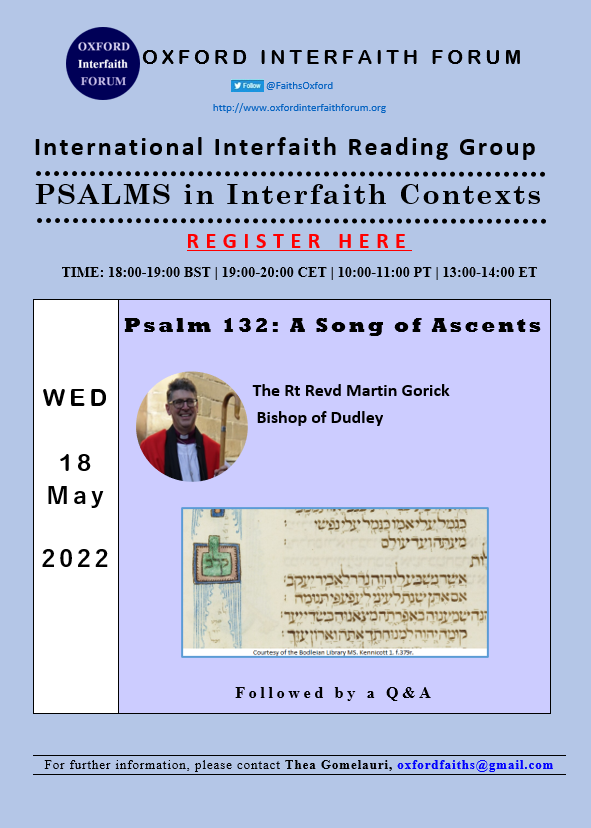
- Psalm 88: ‘Fists Flailing at the Gates of Heaven’
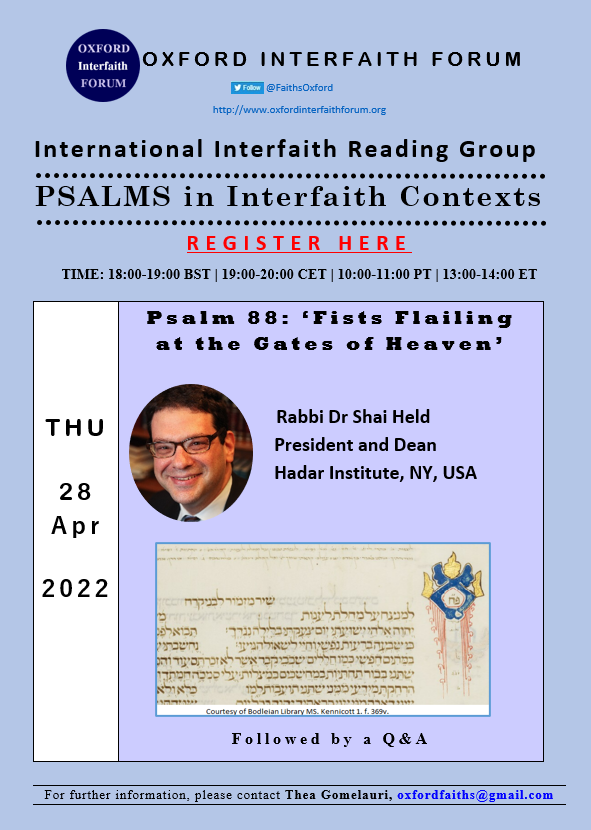
- Psalm 82: Demanding Justice
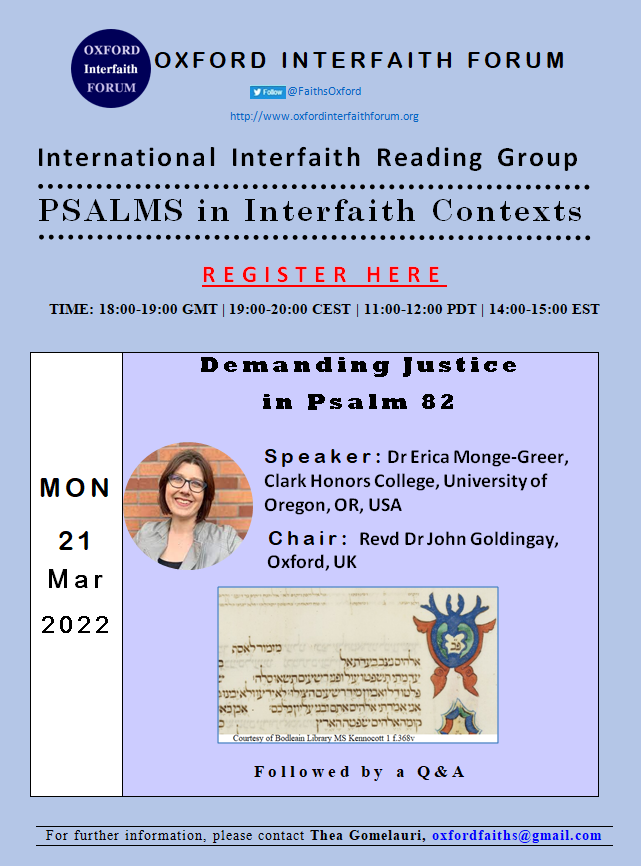
- Psalm 51: Contemporary Multifaith Interpretations
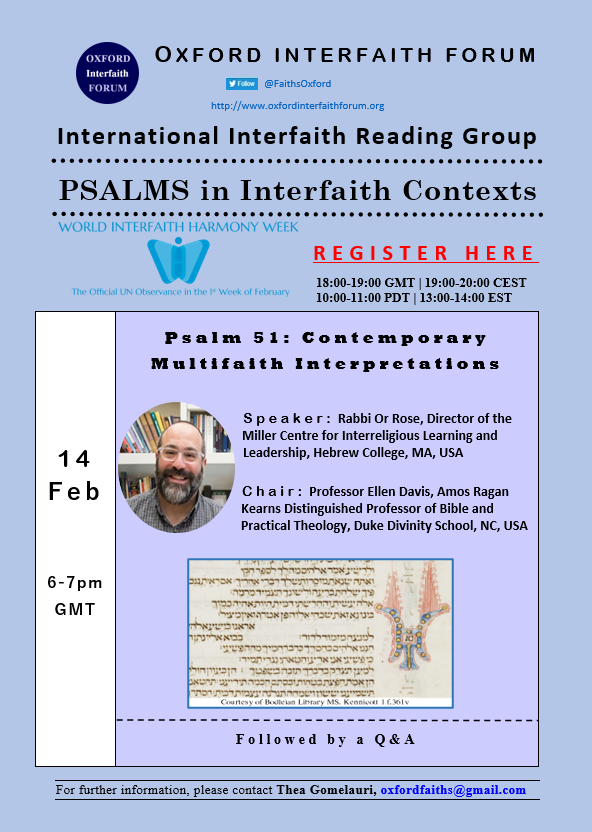
- Comparative Reading of Psalms and Abrahams’ Prayers in the Quran
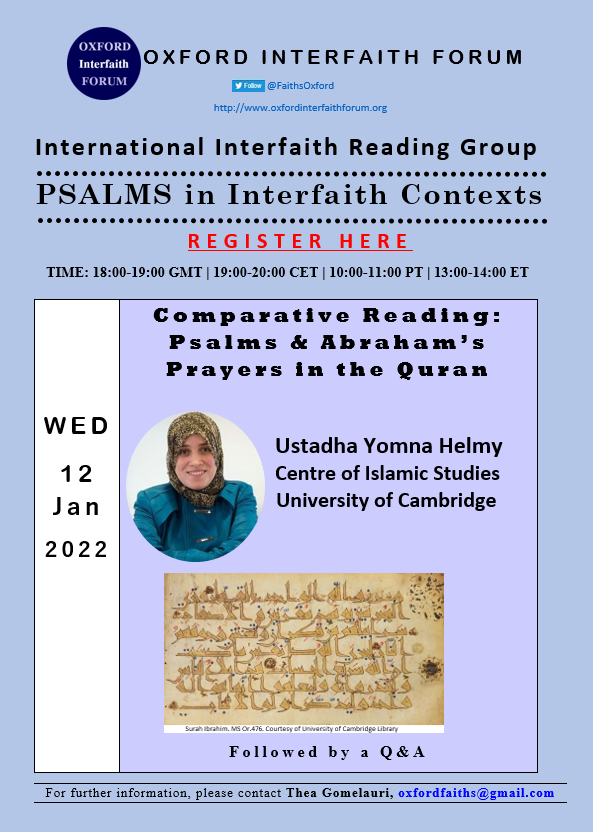
- Psalm 33: Mystical Reading
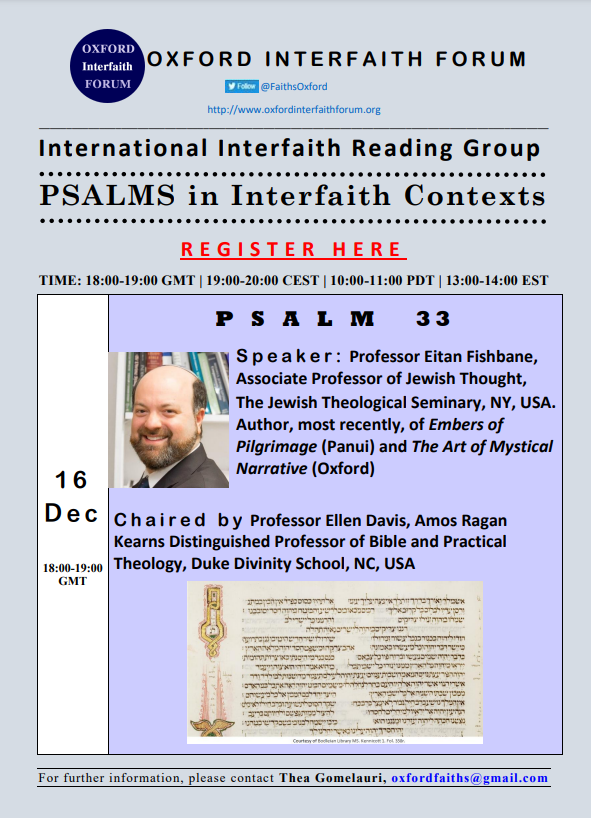
- Psalm 139
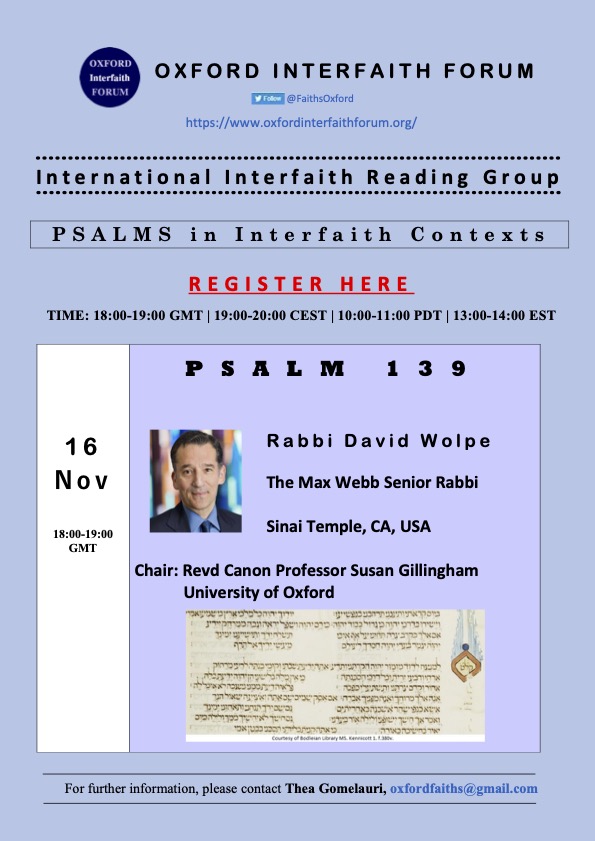
- Psalm 1: Inaugural Session by Revd Dr John Goldingay
